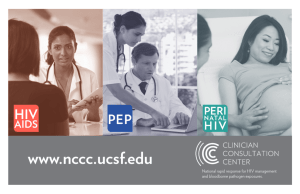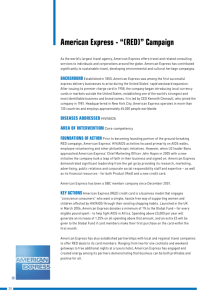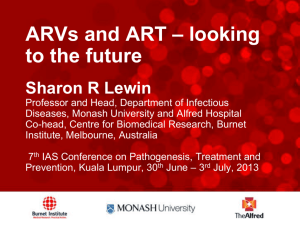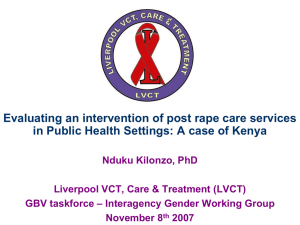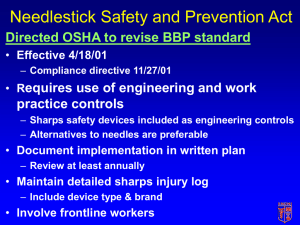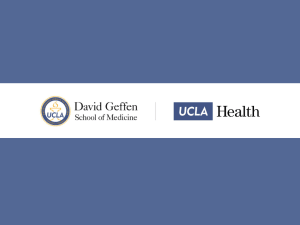AC HUB DISCUSSIONS
advertisement
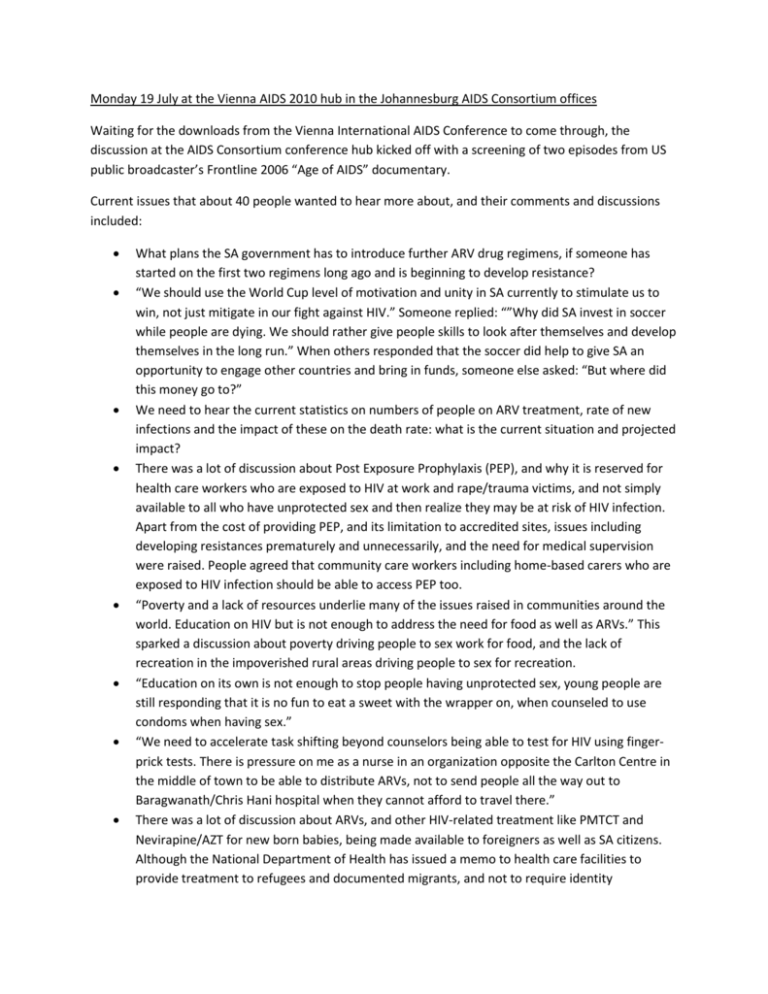
Monday 19 July at the Vienna AIDS 2010 hub in the Johannesburg AIDS Consortium offices Waiting for the downloads from the Vienna International AIDS Conference to come through, the discussion at the AIDS Consortium conference hub kicked off with a screening of two episodes from US public broadcaster’s Frontline 2006 “Age of AIDS” documentary. Current issues that about 40 people wanted to hear more about, and their comments and discussions included: What plans the SA government has to introduce further ARV drug regimens, if someone has started on the first two regimens long ago and is beginning to develop resistance? “We should use the World Cup level of motivation and unity in SA currently to stimulate us to win, not just mitigate in our fight against HIV.” Someone replied: “”Why did SA invest in soccer while people are dying. We should rather give people skills to look after themselves and develop themselves in the long run.” When others responded that the soccer did help to give SA an opportunity to engage other countries and bring in funds, someone else asked: “But where did this money go to?” We need to hear the current statistics on numbers of people on ARV treatment, rate of new infections and the impact of these on the death rate: what is the current situation and projected impact? There was a lot of discussion about Post Exposure Prophylaxis (PEP), and why it is reserved for health care workers who are exposed to HIV at work and rape/trauma victims, and not simply available to all who have unprotected sex and then realize they may be at risk of HIV infection. Apart from the cost of providing PEP, and its limitation to accredited sites, issues including developing resistances prematurely and unnecessarily, and the need for medical supervision were raised. People agreed that community care workers including home-based carers who are exposed to HIV infection should be able to access PEP too. “Poverty and a lack of resources underlie many of the issues raised in communities around the world. Education on HIV but is not enough to address the need for food as well as ARVs.” This sparked a discussion about poverty driving people to sex work for food, and the lack of recreation in the impoverished rural areas driving people to sex for recreation. “Education on its own is not enough to stop people having unprotected sex, young people are still responding that it is no fun to eat a sweet with the wrapper on, when counseled to use condoms when having sex.” “We need to accelerate task shifting beyond counselors being able to test for HIV using fingerprick tests. There is pressure on me as a nurse in an organization opposite the Carlton Centre in the middle of town to be able to distribute ARVs, not to send people all the way out to Baragwanath/Chris Hani hospital when they cannot afford to travel there.” There was a lot of discussion about ARVs, and other HIV-related treatment like PMTCT and Nevirapine/AZT for new born babies, being made available to foreigners as well as SA citizens. Although the National Department of Health has issued a memo to health care facilities to provide treatment to refugees and documented migrants, and not to require identity documents, what about undocumented migrants? Everyone should be treated equally and we should not preserve pools of untreated HIV infection but treat everyone to prevent the spread of HIV. A question on why other countries have better medicines than SA, led to discussion around the Medicine Control Council delays and the need for fixed-dose combination pills to cut down doses to once a day and the need for urgently licensing the newer triple-therapy drugs with fewer side effects already available overseas. In response to the Monday 19 July 2010 conference session on Sexual and Reproductive Rights, the discussions included: Why do nurses still act so surprised when women of over fifty years old say they are HIV positive? The discussion ranged around their unfaithful husbands, their own affairs, their exposure through caring for those with HIV, the delay in developing symptoms, the high rates of infection in men of 50+ and the need for everyone to be treated respectfully and not to be interrogated. We need to address the needs of the whole community and not only see young people as sexually active. Nurses who do not adhere to their code of conduct should be reported to the Health Professions Council or SA Nurses Council and activists should approach their unions to discuss these issues. Some people felt there was a need to have sessions on issues affecting men particularly, to balance the focus on the rights of women and girls. Others felt that women were disadvantaged, expected to be subordinate, tended to keep problems to themselves for fear of stigma and there should be empowerment for women to feel equal. People were shocked to hear about forced sterilizations of younger women living with HIV in Namibia and local women who had had several children and had been sterilized without their consent. Discussion ranged around educating people about their human rights, and that sterilizing them without full consent might be intended to be protective and to reduce the number of vulnerable orphans; but that this was the wrong way to go about this and that people must have full and accurate information and their rights to choose must be respected. “The government must consider how people feel. They tell people but they don’t ask people. People get information differently. There is a need for people to be heard about how the government is implementing things.”

